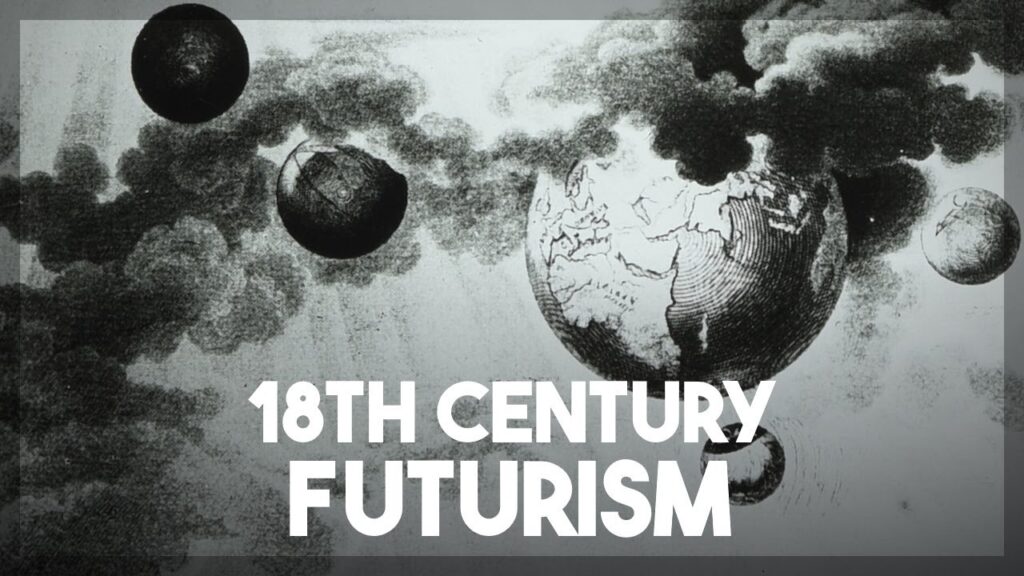Many Americans might think of Rip Van Winkle as the first man to nod off and wake up in the distant future. But as often seems to have been the case in the seventeenth and eighteenth centuries, the French got there first. Almost 50 years before Washington Irving’s short story, Louis-Sébastien Mercier’s utopian novel L’An 2440, rêve s’il en fut jamais (1771) sent its sleeping protagonist six and a half centuries forward in time. Read today, as it is in the new Kings and Things video above, the book appears in roughly equal parts uncannily prophetic and hopelessly rooted in its time — setting the precedent, you could say, for much of the yet-to-be-invented genre of science fiction.
Published in English as Memoirs of the Year Two Thousand Five Hundred (of which both Thomas Jefferson and George Washington owned copies), Mercier’s novel envisions “a world where some technological progress has been made, but the industrial revolution never happened. It’s a world where an agrarian society has invented something resembling hologram technology, where Pennsylvania is ruled by an Aztec emperor, and drinking coffee is a criminal offense.” Its setting, Paris, “has been completely reorganized. The chaotic medieval fabric has made way for grand and beautiful streets built in straight lines, similar to what actually happened in Haussmann’s renovation a bit under a century after the book was published.”
Mercier couldn’t have known about that ambitious work of urban renewal avant la lettre any more than he could have known about the revolution that was to come in just eighteen years. Yet he wrote with certainty that “the Bastille has been torn down, although not by a revolution, but by a king.” Mercier’s twenty-fifth-century France remains a monarchy, but it has become a benevolent, enlightened one whose citizens rejoice at the chance to pay tax beyond the amount they owe. More realistically, if less ambitiously, the book’s unstuck-in-time hero also marvels at the fact that traffic traveling in one direction uses one side of the street, and traffic traveling in the other direction uses the other, having come from a time when roads were more of a free-for-all.
L’An 2440, rêve s’il en fut jamais offers the rare example of a far-future utopia without high technology. “If anything, France is more agrarian than in the past,” with no interest even in developing the ability to grow cherries in the wintertime. Many of the inventions that would have struck Mercier’s contemporary readers as fantastical, such as an elaborate device for replicating the human voice, seem mundane today. Nevertheless, it all reflects the spirit of progress that was sweeping Europe in the late eighteenth century. Mercier was reformer enough to have his country abandon slavery and colonialism, but French enough to feel certain that la mission civilisatrice would continue apace, to the point of imagining that the French language would be widely spoken in China. These days, a sci-fi novelist would surely put it the other way around.
Related content:
In 1896, a French Cartoonist Predicted Our Socially-Distanced Zoom Holiday Gatherings
How French Artists in 1899 Envisioned What Life Would Look Like in the Year 2000
1902 French Trading Cards Imagine “Women of the Future”
A 1947 French Film Accurately Predicted Our 21st-Century Addiction to Smartphones
Based in Seoul, Colin Marshall writes and broadcasts on cities, language, and culture. His projects include the Substack newsletter Books on Cities, the book The Stateless City: a Walk through 21st-Century Los Angeles and the video series The City in Cinema. Follow him on Twitter at @colinmarshall or on Facebook.


